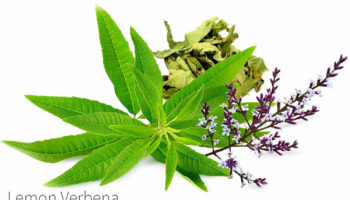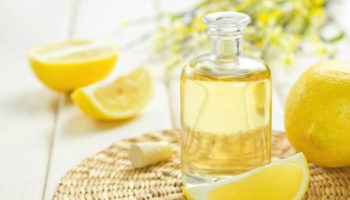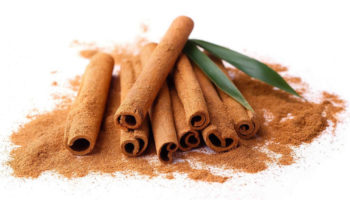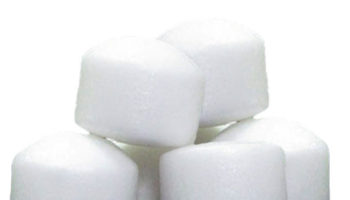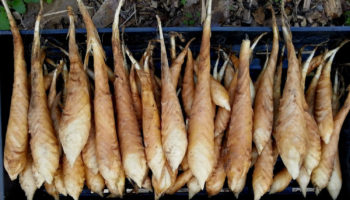What is spikenard
Spikenard, also called nard, nardin, and muskroot, is a class of aromatic amber-colored essential oil derived from Nardostachys jatamansi – commonly referred to as Indian spikenard, a flowering plant of the Valerian family which grows to about 10–60 m in height in the Himalayas of Nepal, China, and India 1, 2. There are several varieties of Spikenard, they are California spikenard (Aralia californica), Japanese spikenard (Aralia cordata) and American spikenard (Aralia racemosa). The underground stems of Spikenard can be crushed and distilled into an intensely aromatic amber-colored essential oil, which is very thick in consistency 3. Spikenard roots and rhizomes are harvested throughout the Himalayas and traded from the alpine regions to the plains of India. Spikenard roots are considered aromatic, bitter tonic, antispasmodic, deobstruent, stimulant, antiseptic, diuretic, and emmenagogue (stimulates or increases menstrual flow) 4. The roots of the plant were also used traditionally for indurations (lumps) and solid tumours in different systems of medicine 5. Bhagat et al., have reported the cytotoxicity of alcoholic extract and n-butanol fraction of spikenard in lung, liver, ovary and prostate cancer cell lines 6. Spikenard has been suggested to protect cells and tissues through its antioxidative properties 7. Moreover, two new sesquiterpenoids have been isolated from the roots and rhizomes of spikenard and cytotoxicity of the crude chloroform:methanol extract and the isolates have been studied in lung, prostate, estrogen receptor-positive breast cancer and neuroblastoma cell lines 8.
Previous studies also reported that the dried roots of spikenard contain sesquiterpenes, like jatamansone, spirojatamol, patchouli alcohol, norseychelanone, jatamol A and B, lignans and neolignans, like virolin, pinoresinol, jatamansic acid, and terpenic coumarins, like oroselol and jatamansin. Spikenard essential oil is composed of sesquiterpenoids and coumarins. Jatamansone is the principle sesquiterpenoid and is attributed with rendering majority of the biological activity 9.
Spikenard oil is used as a perfume, an incense, a sedative, and a herbal medicine said to fight insomnia, birth difficulties, and other minor ailments. A hexane extract of spikenard contained a lot of calarene and its vapor inhalation containing sesquiterpenoid aristolen-1(10)-en-9-ol had a sedative effect on mice 10, 11. Spikenard oil has, since ancient times, been used as a perfume, as a medicine and in religious contexts, across a wide territory from India to Europe.
Figure 1. Spikenard plant

Spikenard uses
Spikenard has a long history of medicinal use which dates back to 1000–800 B.C. in Ayurveda and Unani systems of medicine for neurological disorders 12. Spikenard roots (rhizomes) are rich in sesquiterpenoids, terpenic coumarins, phenols, flavonoids, alkaloids, lignans, and neo-lignans 13. It has been used as a sedative, promotion of sleep, antidepressant, antiepileptic, antihysteric, hypotensive, antispasmodic, anti-inflammatory, cardiotonic, for mind rejuvenation, alleviating mental diseases and as a brain tonic 14, 15. It has also been used for treating headache, insomnia, epilepsy; disorders of cardiovascular system; flatulence and intestinal colic as well as menopausal symptoms 14. Spikenard has been shown to possess anti-inflammatory 16, anti-oxidant 17, anti-bacterial 18, anticonvulsant 19 and hepatoprotective activities 20. Spikenard has been shown to exhibit anti-tumour activity in lung, liver, ovary, breast and prostate cancers 19, 17. Recently, the higher doses of alcoholic and n-hexane extract of spikenard were shown to significantly inhibit the growth of neurobalstoma cell lines, IMR 32 and SK-N-SH 17.
Summary
Despite Spikenard long history of use in Ayurveda and traditional medicine, there is INSUFFICIENT clinical evidence to support its use as antioxidant, anti-cancer, anticonvulsant, anti-inflammatory, antidepressant, antihysteric, anti-hypertensive, antispasmodic, cardiotonic, for mind rejuvenation, alleviating mental diseases or even as a brain tonic. Good quality human trials are needed to establish whether or not there is therapeutic effect of Spikenard or Spikenard essential oil. Without such evidence, it will remain unclear whether these untested and unproven positive effects in test tube and animal studies are truly beneficial in humans.
- Chauhan RS, Kaul MK, Kumar A, Nautiyal MC. Pollination behaviour of Nardostachys jatamansi DC., an endangered medicinal and aromatic herb. Sci Hortic-Amsterdam. 2008;117:78–81. doi: 10.1016/j.scienta.2008.03.018. [↩]
- Olsen CS. Trade and conservation of Himalayan medicinal plants: Nardostachys grandiflora DC. and Neopicrorhiza scrophulariiflora (Pennell) Hong. Biol Conserv. 2005;125:505–514. doi: 10.1016/j.biocon.2005.04.013.[↩]
- Dalby, Andrew (2000), Dangerous Tastes: the story of spices, London: British Museum Press, ISBN 0-7141-2720-5 (US ISBN 0-520-22789-1) pp. 83–88[↩]
- Satyavati GV, Gupta AK, Tandon SN, Seth SD. Medicinal plants of India. Indian Council for Medical Research: New Delhi; 1987.[↩]
- Saetung A, Itharat A, Dechsukum C, Wattanapiromsakul C, Keawpradub N, Ratanasuwan P. Cytotoxic activity of Thai medicinal plants for cancer treatment. Songklanakarin J Sci Technol. 2005;27:469–478.[↩]
- Bhagat M, Pandita RM, Saxena AK. In vitro and in vivo biological activities of Nardostachys jatamansi roots. Med Aromat Plants. 2013;2:142. doi: 10.4172/2167-0412.1000142.[↩]
- Stress modulating antioxidant effect of Nardostachys jatamansi. Lyle N, Bhattacharyya D, Sur TK, Munshi S, Paul S, Chatterjee S, Gomes A. Indian J Biochem Biophys. 2009 Feb; 46(1):93-8.[↩]
- Two new sesquiterpenoids from the rhizomes of Nardostachys jatamansi. Rekha K, Rao RR, Pandey R, Prasad KR, Babu KS, Vangala JR, Kalivendi SV, Rao JM. J Asian Nat Prod Res. 2013; 15(2):111-6.[↩]
- Hoerster H., Ruecker G., Tautges J. Valeranone content in the roots of Nardostachys jatamansi and Valeriana officinalis. Phytochem. 1977;1:1070–1071. doi: 10.1016/S0031-9422(00)86735-7.[↩]
- Inhalation administration of the sesquiterpenoid aristolen-1(10)-en-9-ol from Nardostachys chinensis has a sedative effect via the GABAergic system. Planta Med. 2015 Mar;81(5):343-7. doi: 10.1055/s-0035-1545725. Epub 2015 Mar 23. https://www.thieme-connect.com/DOI/DOI?10.1055/s-0035-1545725[↩]
- Sedative effects of vapor inhalation of agarwood oil and spikenard extract and identification of their active components. Journal of Natural Medicines January 2008, Volume 62, Issue 1, pp 41–46. https://doi.org/10.1007/s11418-007-0177-0[↩]
- Nardostachys jatamansi: a chemical, pharmacological and clinical appraisal. Arora RB. Spec Rep Ser Indian Counc Med Res. 1965; 51():1-117. https://www.ncbi.nlm.nih.gov/pubmed/5844450/[↩]
- Sharma SK, Singh AP. In vitro antioxidant and free radical scavenging activity of Nardostachys jatamansi DC. J Acupunct Meridian Stud. 2012;5:112–118. doi: 10.1016/j.jams.2012.03.002. https://www.ncbi.nlm.nih.gov/pubmed/22682272[↩]
- Monga AK, Kumar S. A phytopharmacological review on Jatamansi. Pharm Res. 2013;9:21–32.[↩][↩]
- Khare CP. Indian Medicinal Plants: An illustrated Dictionary. New York: Springer International Edition; 2007. pp. 433–434.[↩]
- Singh RK, Vaishali Panda SK, Murthy PN, Panigrahi G, Sharma PK, Gupta RK. Evaluation of anti-inflammatory potential of Nardostachys jatamansi rhizome in experimental rodents. Jcoastlife med. 2014;2:38–43.[↩]
- Chaudhary S, Chandrashekar KS, Pai KS, Setty MM, Devkar RA, Reddy ND, et al. Evaluation of antioxidant and anticancer activity of extract and fractions of Nardostachys jatamansi DC in breast carcinoma. BMC Complement Altern Med. 2015;15:50. https://www.ncbi.nlm.nih.gov/pmc/articles/PMC4364107/[↩][↩][↩]
- Bengal Das MP, Banerjee A Anu. Comparative study on In vitro antibacterial and antifungal properties of five medicinal plants of west. Asian J Plant Sci. 2013;3:107–11.[↩]
- Bhagat M, Pandita RM, Saxena AK. In vitro and In vivo Biological Activities of Nardostachys jatamansi roots. MAP. 2013;2:6.[↩][↩]
- Ali S, Ansari KA, Jafry MA, Kabeer H, Diwakar G. Nardostachys jatamansi protects against liver damage induced by thioacetamide in rats. J Ethnopharmacol. 2000;71:359–63.[↩]
